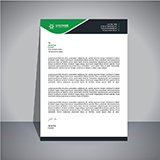Determining the proper amounts of insurance for business property is tricky. Usually, neither the insurance agent nor the insured has any special expertise in establishing the costs of replacing buildings and personal property. Building cost estimator tools are inexact. Business income worksheets help but do not produce perfect results.
The worst case scenario is when an insured suffers a large property loss and finds that the limits were inadequate. A Michigan agency found itself in that exact situation.
The insured, a chemical manufacturer in Detroit, suffered a major fire loss that destroyed a building. The damage to the building was worth more than $5.2 million, damaged personal property inside was worth another $1.17 million, and there was substantial loss of income. The property insurance did not fully cover the insured’s losses, though the court opinion does not say how large the shortfall was. The insured filed suit against its insurance agency, arguing that the agency owed it a legal duty to properly advise it with regard to:
- The types and amounts of coverage that the insured should have purchased for its building and personal property
- The purchase of business income coverage, and
- How its property insurance would respond to a loss.
The insured argued that the agency owed it duty of care because:
- The agency’s producer, who was also part owner, admitted in a deposition that he had a responsibility to advise his client
- The agency stated in a pleading to the trial court that the court could assume that the agency had a duty to advise the insured and obtain adequate coverage
- The agency was an independent insurance agency, and only captive agents were exempt from a duty to advise their clients
- The insured and agency had a “special relationship”
For its part, the agency argued that it did not owe a duty of care to the manufacturer, especially since the insured never questioned the insurance policy’s terms. The trial court agreed and ruled in the agency’s favor. The manufacturer appealed.
The appeals court rejected all of the insured’s arguments. First, the judges said that they could find no legal precedent to support the insured’s claim that “an after-the-fact, subjective admission of responsibility somehow creates a legal duty.” They also noted that the issue of whether the agency owed the insured a duty was disputed in court, implying that the agency in reality did not admit to it. Third, the court ruled that the state legislature had made a legal distinction between insurance agents and insurance counselors, and therefore all agents, both captive and independent, were exempt from a duty to advise. Lastly, the court cited a prior decision setting out the exceptions to the “no duty to advise” rule, which were:
- The agent misrepresented the nature or extent of the coverage offered or provided
- The insured made an ambiguous coverage request that required clarification
- The insured asked a question that could require advice and the agent provided inaccurate advice
- The agent made an express agreement to advise the insured.
The court ruled that none of these things happened. Accordingly, it awarded judgment in the agency’s favor.
The agency won this case, but only after two rounds of legal proceedings that distracted it from its primary business. While there is no foolproof way to prevent all client lawsuits, there are things the agency could have done to reduce the chances of this happening or to hasten a dismissal:
- The agency could have used the cost estimator tools to determine a range of values and presented these values (and their associated premiums) as options from which the insured could select.
- The agency could have presented the results produced by the cost estimator with a warning that the the agency could not guarantee that the calculated amounts of insurance were adequate. For good measure, it could have asked the insured to sign an acknowledgment of this.
- The agency could have refused to recommend specific limits and advised the insured to consult construction and accounting experts for recommendations.
The selection of coverage limits should be done jointly by agency and client. An agency that does not collaborate with an insured on these questions runs a high risk of legal trouble.
















